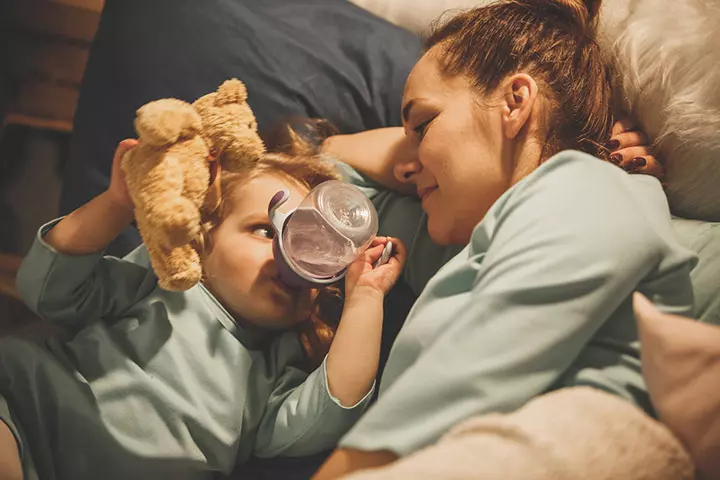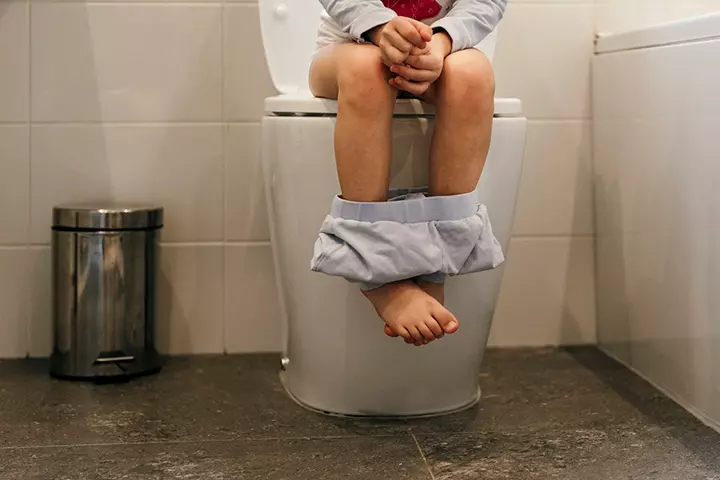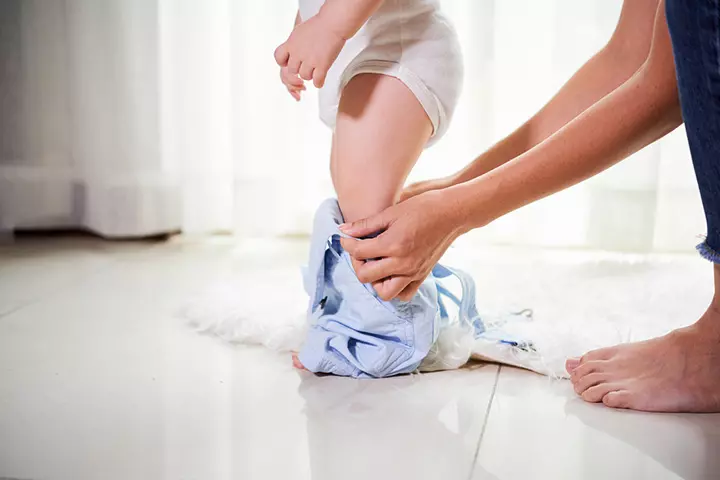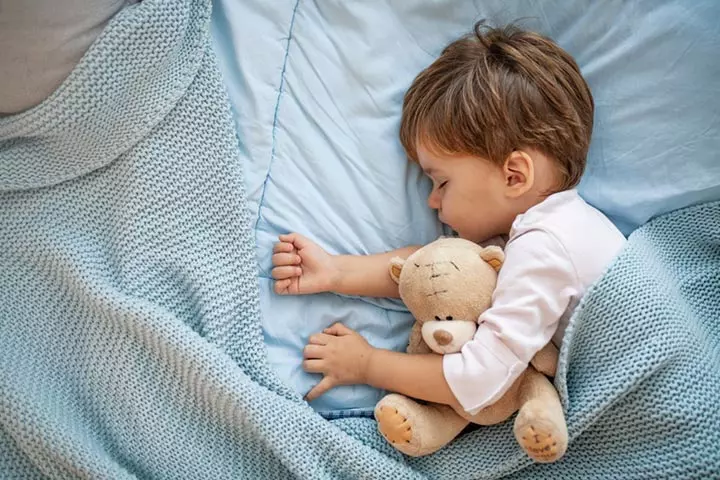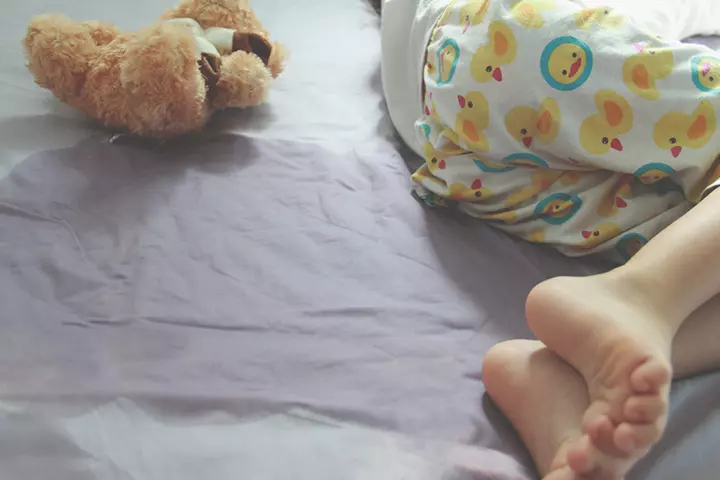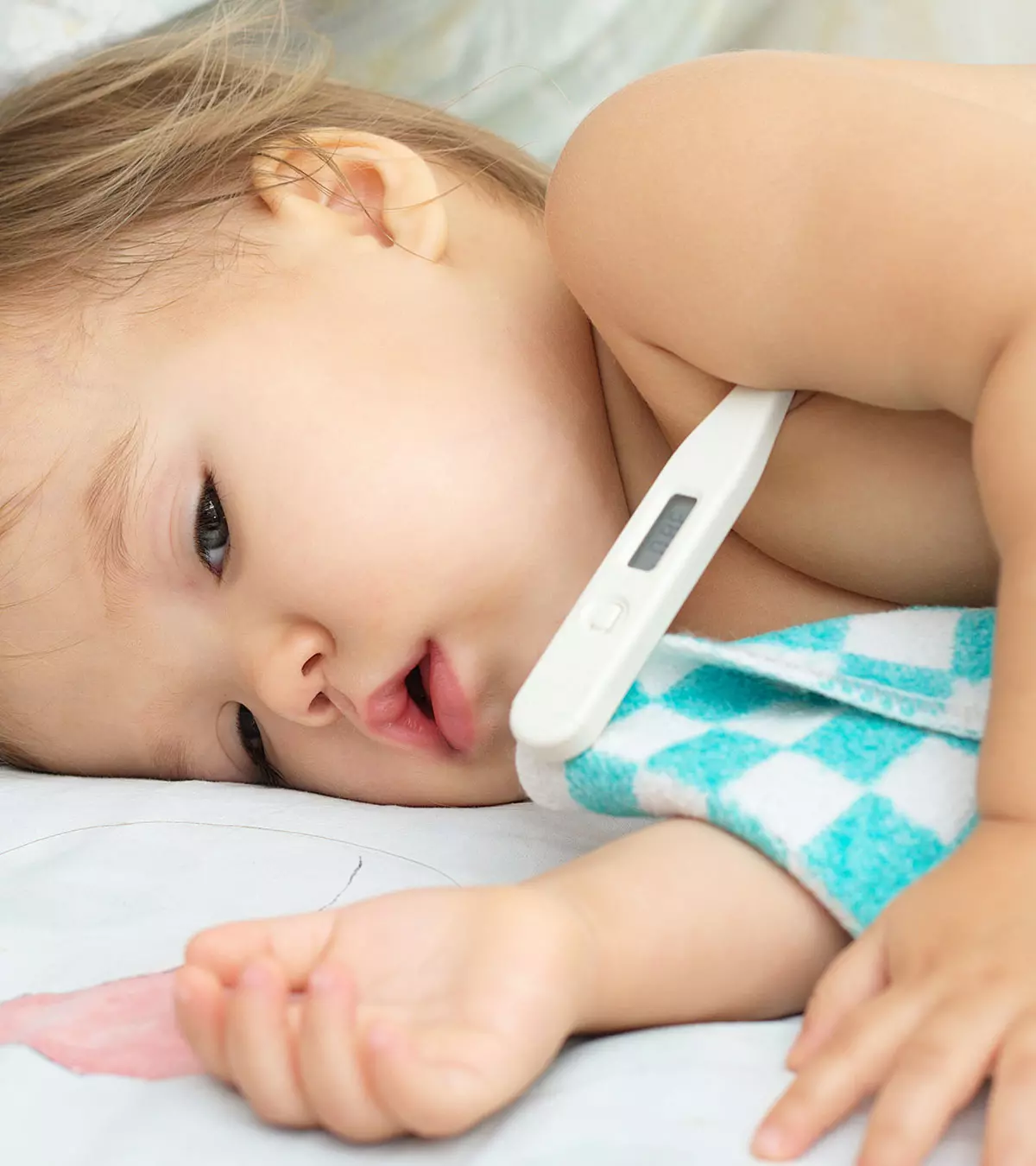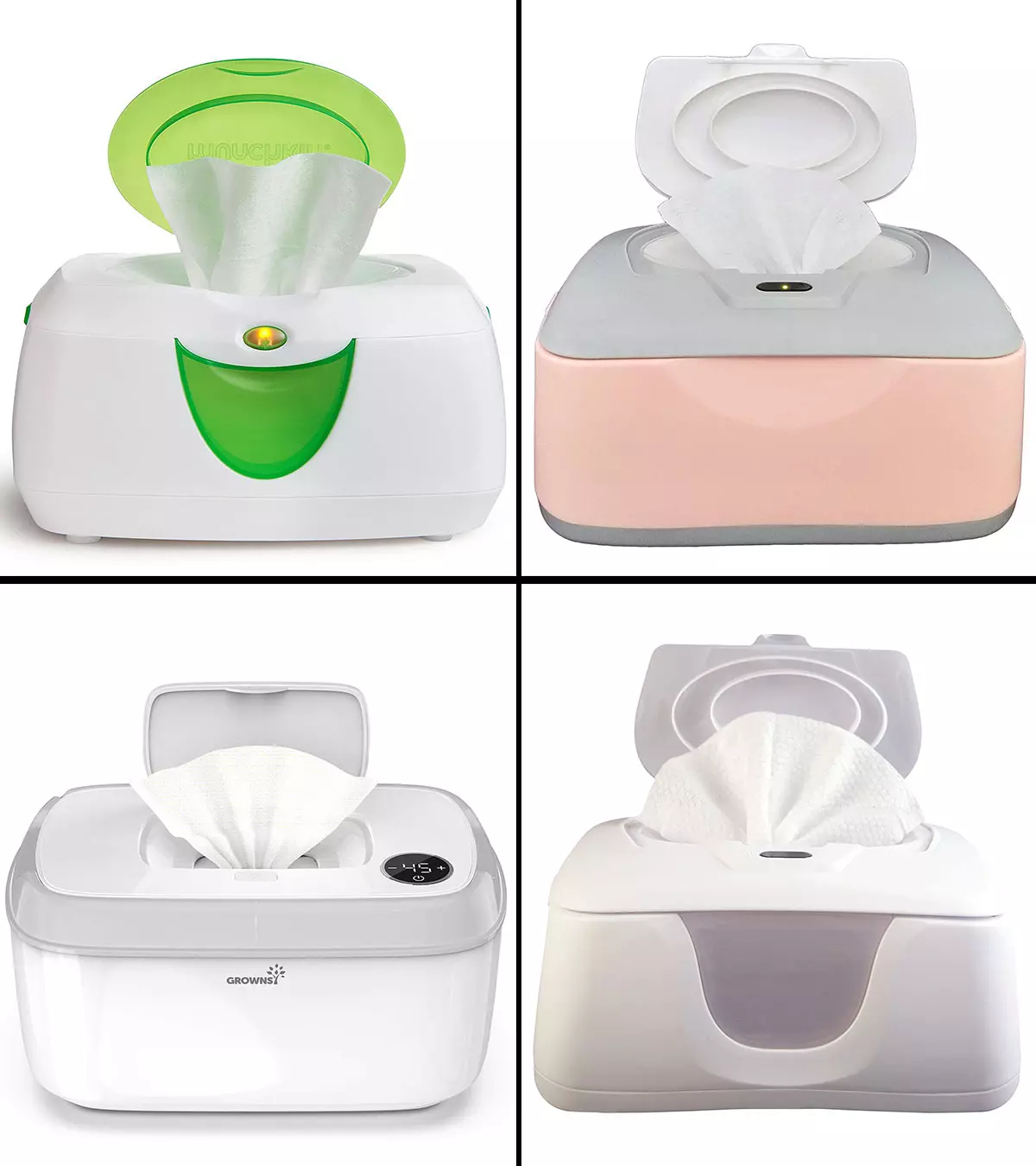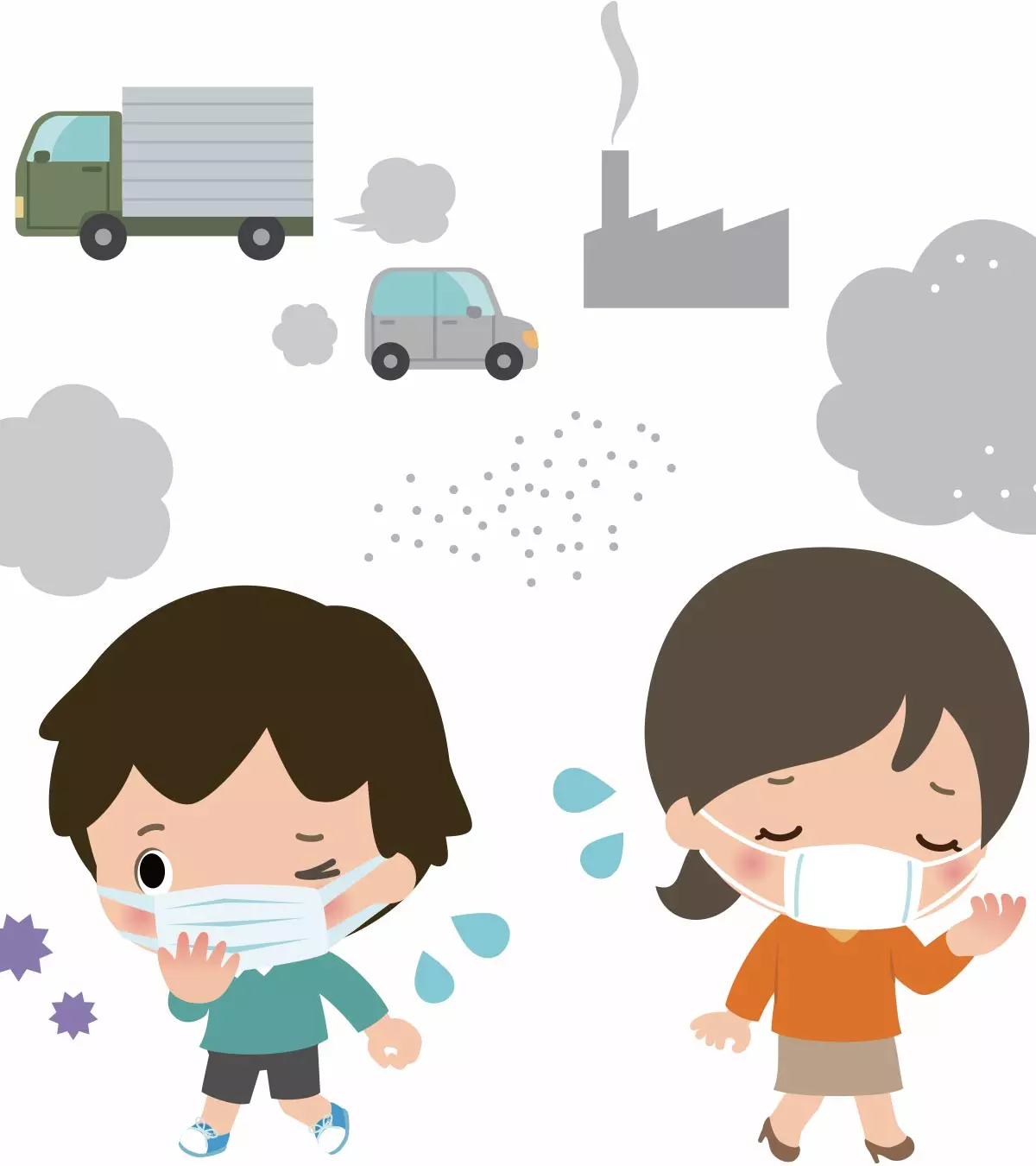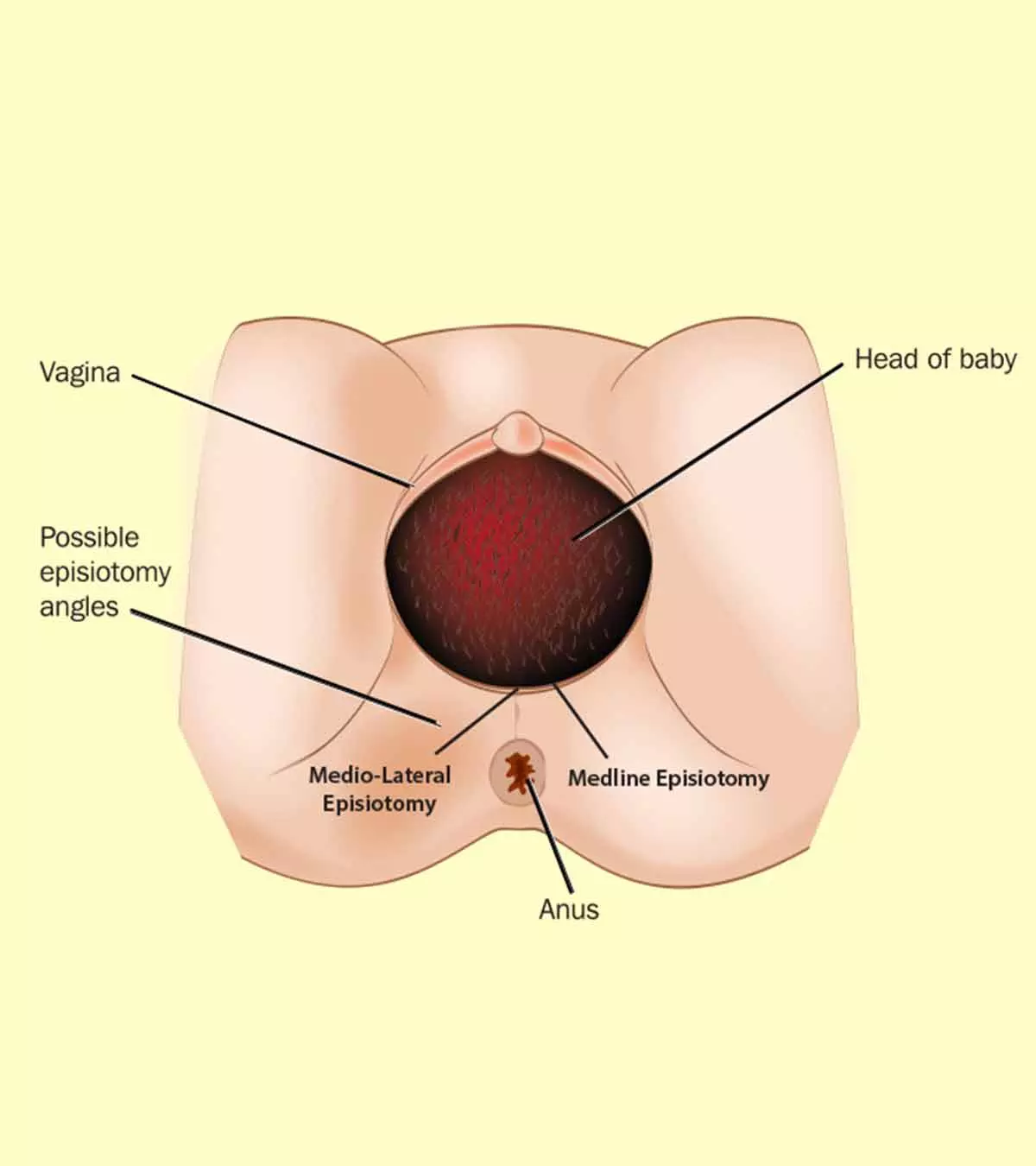

Image: Shutterstock

Nighttime potty training is the final step of the potty training process. And if you have kids, you’re already aware of the hassle involved. By this time, your child may have mastered the daytime potty training game, but nighttime potty training rarely comes easy. And this is mostly due to the timing involved. At night everyone goes to sleep and it becomes tricky to monitor your child. And after they’ve fallen asleep its not like that they would listen to you. So, how can parents cope with the setbacks and ensure the process is smooth?
Staying dry at night depends on how well your child can hold their bladder. Bedwetting is a common issue in kids under six years olds. It’s a natural part of growing up, and it usually goes away gradually. Medically referred to as “nocturnal enuresis”, the loss of urine can also happen to kids above the age of six a few times per week (1).
You’ll want to check if they’re having successive days when they can keep a dry diaper or to confirm if they’ve mastered nighttime potty training. For parents struggling with this, here’s how they can cope with their child’s bedwetting habit and succeed at nighttime potty training. Read on to know more:
1. Limit Their Fluid Intake Post-Dinner
Image: IStock
While your child must drink water to stay hydrated throughout the day, it’s okay to limit this rule after dinner. All liquids, including water, juice, and soup, should be consumed in moderation or if your child feels thirsty, let them take sips instead of large gulps of the fluid. If your child consumes a lot of liquid at a go, they are more likely to pee frequently. Instead encourage them to take smaller sips if they must drink.
2. Ensure They Pee Before Bedtime
Image: IStock
It’s an excellent practice to teach your kids to empty their bladder before they sleep. The likelihood of them wetting their beds is a lot less. Next time your little one hits the bed before clearing the bladder, gently nudge them towards the toilet.
3. Dress Them Well
Image: IStock
Just like daytime potty training, dressing your kid in clothes that can be easily removed, along with pull-up diapers, will encourage them to use the potty at night. When your kid can keep themselves dry consistently at night, you can try avoiding the use of pull-up diapers and dress them in breathable undergarments instead.
4. Wake Them Up To Empty Their Bladder
Image: Shutterstock
Ninety minutes after your child has already slept, gently wake them up or nudge them to use the potty. This is useful, especially when they’ve consumed some liquid right before they hit the bed. Yes, it is possible that they could throw a tantrum or two when their sleep is disturbed but remain calm. Slowly but firmly, ask them to use the potty. This is a far better way to empty the bladder effectively and ensure they don’t end up doing it on the bed.
5. Ensure They Have The Right Tools At Their Disposal
Image: Shutterstock
You may either buy your child a potty or train them to use the adult toilet. But make sure you’re following all safety precautions in the process. When using the adult’s toilet, help them place a potty seat and teach them to reach it safely. To reduce the chances of mishaps, take care to keep the toilet well-lit at nighttime. Plus, keep aside a set of extra clothes and bedsheets and place a waterproof mattress protector under the bed cover so that the clean-up is fuss-free and quick.
6. Get Them To Pee In The Potty As Soon As They Wake Up In The Morning
Image: IStock
Right after waking up, make your child empty their bladder immediately in the potty, even if they’ve worn a diaper. Consistently doing this will make them form a healthy bathroom habit and remind them that diapers are only for emergencies.
7. Prepare Yourself For Accidents
Image: Shutterstock
You cannot potty-train your child overnight, so keeping yourself prepared is a good option. It will make the process easier for your kid and you. If your child wakes up to wet sheets, have them help you change the sheets. Let them understand that it’s a part of learning. This will also enable them to feel good about themselves since they helped you to clean the mess.
8. Never Criticize Your Child
Image: IStock
It’s common for your child to feel ashamed or embarrassed if they are scolded for wetting the bed accidentally. It’s crucial to reassure your child and give them your support. Tell them that emergencies can happen and mastering toilet skills takes time. Stay calm even when you clean up the mess and help them change into a fresh pair of clothes. Let it go instead of dwelling on their mistakes. Put them to sleep and keep the conversation for the morning instead.
9. Encourage Them With Rewards
Image: Shutterstock
To make your child repeat the good behaviors, it is essential to encourage them. This is called positive reinforcement (2). You can praise them or reward them with stickers when they make progress. It may not seem necessary but celebrating their little successes keeps them inspired to try learning new things they’re slowly being introduced to, especially if they were in the habit of wetting the bed earlier.
While bedwetting doesn’t cause significant issues, it can create some emotional problems in your child. You should see a doctor if your child continues to soil the bed even after age seven; they’ve suddenly started to wet the bed despite being usually dry at night; experience painful urination, or excrete hard stool. Without learning good toileting habits, your child may suffer from low self-esteem, lose opportunities as they save themselves from embarrassing situations at sleepovers and camps, and of course, have rashes that cause pain and discomfort. How did you potty train your child at night? What challenges did you face? Do share your experiences with us in the comments below!
References
- Nocturnal Enuresis.
https://www.ncbi.nlm.nih.gov/books/NBK545181/ - An Introduction to Positive Reinforcement Training and Its Benefits
https://www.sciencedirect.com/science/article/abs/pii/S1557506306001777#:~:text=Training%20Is%20Science%20Based%201%20Positive%20Reinforcement.%20Positive
Community Experiences
Join the conversation and become a part of our nurturing community! Share your stories, experiences, and insights to connect with fellow parents.

